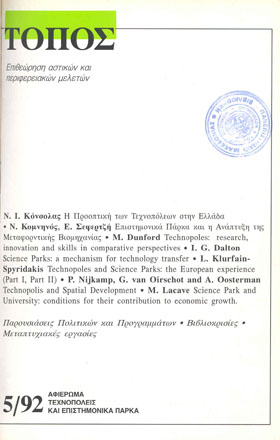Technopoles: research, innovation and skills in comparative perspective
DOI:
https://doi.org/10.26266/jtovol5pp29-54Keywords:
Technopoles, Institutional structuresAbstract
Technopoles are localised complexes of high technology and innovation-intensive activities and are seen as one of the spatial expressions of the development of the critical new technologies of the information age. In years of crisis there is a mismatch between new technological developments and institutional and social structures (skill structures, management practices, industrial relations and so on). The extent of the mismatch differs from one nation and one area to another, with the result that some economies are far more successful than others. What this perspective suggests is that the character, speed and direction of development of technopolitan activities will depend on the institutional conditions in which inventions and research and development occur and to the succes of different institutional conditions is stimulating the diffusion of technopolies. In this article only five critical institutional factors will be considered: the institutionalisation of research and development, state-industry relations, vocational education regimes, inter-firm relations and the wage and employment relations. What it is argued, however is that in a number of areas relevant to the development of technopoles markets fail and more organised and collaborative relations of partnership are required.Downloads
Published
1992-10-16
Issue
Section
Articles

